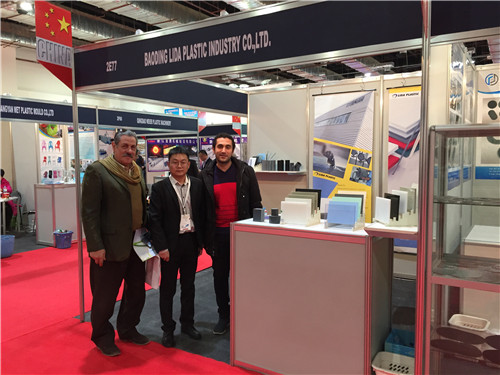Oct . 06, 2024 00:16 Back to list
High-Density Polyethylene Corrugated Pipe for Durable and Efficient Drainage Solutions
Understanding HDPE Corrugated Pipes A Modern Solution for Drainage and Conduits
High-Density Polyethylene (HDPE) corrugated pipes are becoming increasingly popular in various industries due to their robust design and versatile applications. As a crucial component in modern infrastructure, these pipes are primarily used for drainage, stormwater management, and various underground applications.
What is HDPE?
High-Density Polyethylene is a thermoplastic polymer known for its high strength-to-density ratio. It is resistant to impact, chemicals, and UV radiation, making it an ideal material for outdoor applications. The corrugated design enhances its structural integrity while allowing for flexibility and ease of installation.
Advantages of HDPE Corrugated Pipes
1. Durability HDPE pipes can withstand harsh environmental conditions without losing structural integrity. They are resistant to corrosion and can endure extreme temperatures, which makes them reliable for long-term use.
2. Lightweight and Flexible Unlike traditional materials like concrete or metal, HDPE is lightweight, making it easier to transport and install. The flexibility of corrugated design enables these pipes to bend without breaking, accommodating various soil movements and conditions.
3. Cost-Effectiveness The initial investment in HDPE pipes can be lower than that of traditional materials. Their durability and low maintenance requirements lead to significant savings over time. Additionally, the ease of installation reduces labor costs during construction.
4. Environmental Benefits HDPE is recyclable, which means that using these pipes contributes to sustainable practices in construction and infrastructure development. These pipes can also be used in LEED-certified projects, promoting environmentally friendly building practices.
hdpe corrugated pipe

5. Hydraulic Efficiency The smooth interior surface of HDPE corrugated pipes minimizes friction, allowing for efficient water flow. This efficiency is crucial in drainage systems where effective water removal is necessary to prevent flooding and structural damage.
Applications
HDPE corrugated pipes have diverse applications, including
- Stormwater Management They are widely used in drainage systems designed to manage stormwater runoff, reducing the risk of flooding in urban areas.
- Wastewater Management These pipes are effective in siphoning waste and are often used in sewer systems and treatment facilities.
- Transportation Conduits HDPE pipes serve as protective conduits for electrical and communication cables, ensuring they are safeguarded against environmental hazards.
- Agricultural Use In agriculture, HDPE pipes are used for irrigation and drainage applications, contributing to more efficient water use and management.
Conclusion
The increasing reliance on HDPE corrugated pipes reflects a shift towards innovative and sustainable solutions in infrastructure. With their durability, cost-effectiveness, and environmental benefits, these pipes are essential for modern drainage systems, waste management, and various other applications. As industries continue to seek efficient and reliable materials, HDPE corrugated pipes are poised to play a vital role in future developments. Their proven performance is an asset for engineers, contractors, and municipalities striving to build resilient infrastructures that can withstand the test of time.
-
Durable PP Rigid Sheet: Lightweight, Chemical Resistant Solutions
NewsAug.21,2025
-
PVC Grey Sheet for Extraction: Chemical Resistant & Durable
NewsAug.19,2025
-
Durable PVC Pipe Fittings for Plumbing & Irrigation Needs
NewsAug.18,2025
-
HDPE Steel Belt Reinforced Spiral Corrugated Pipe | High Strength
NewsAug.17,2025
-
HDPE Pipe Fittings: Durable, Leak-Proof Solutions
NewsAug.16,2025
-
Premium CPVC Sheet: High-Temp & Chemical Resistant Solutions
NewsAug.15,2025

